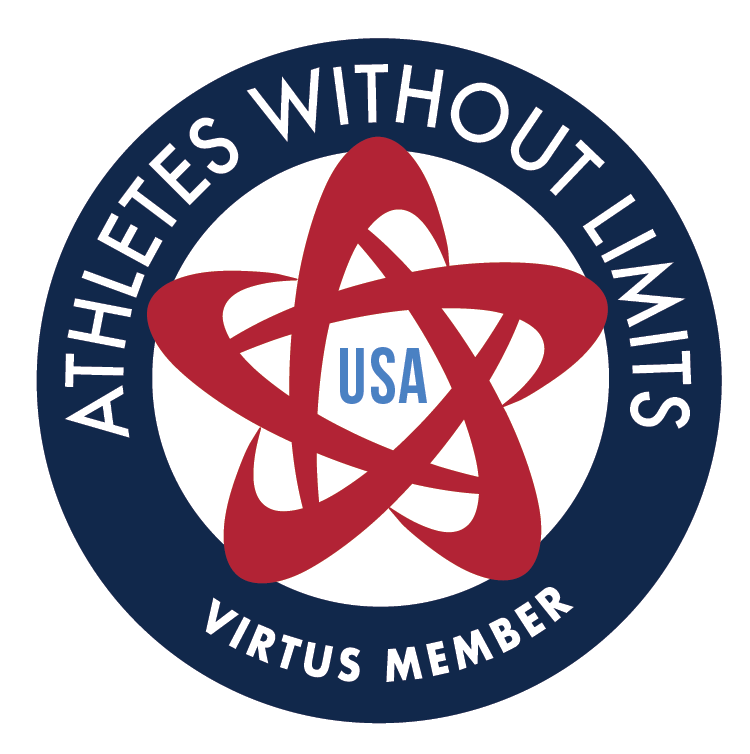
Welcome – we’re so excited to work with you on your application!
Athletes Without Limits is the USA Member of Virtus International
We’re here to help US athletes with Intellectual Disability, Down Syndrome and Autism
apply for Virtus (and Paralympic) eligibility in order to access opportunities to compete
— think of us as your Guidance Counselors for higher level sport!
Note: Project Inspire Soccer Players should use our Inspire League Application instead.
Organizations & Events that Recognize Virtus Eligibility
Virtus represents high level athletes (including Paralympians) with intellectual impairments worldwide —
some or all of our Virtus eligibility groups below are recognized organizations both in the US and Internationally!
Visit our Event Calendar for Upcoming Opportunities!
Virtus II1 Group: Intellectual Disability or Autism with Intellectual Disability
Virtus II2 Group: Down Syndrome (or Intellectual Disability with Additional Functional Impairments)
Virtus II3 Group: Autism Open (those not in II1 group above)
Athletes Without Limits Trips to Virtus Events (Open to Virtus II1, II2, and II3):
Virtus eligibility is needed for athletes striving to qualify for an Athletes Without Limits event
or National Team Trip to Virtus International event in 14+ summer and winter sports.
Paralympic Games & Pathways open to Virtus II1/II2 athletes:
World Para Swimming / U.S. Paralympic Swimming (Class S14)
World Athletics / U.S. Paralympic Track & Field (Class T20/F20)
ITTF / U.S. Paralympic Table Tennis (Class 11)
Other organizations open to Virtus II1/II2 athletes:
US Para Karate (Virtus II(P21) and Virtus II2(P22)
U.S. Adaptive Open International Golf Championships (requires Virtus II1/II2 WR4GD World Player Pass )
USDGA Ping National Golf Championships (requires Virtus II1/II2 WR4GD World Player Pass )
And some other U.S. Adaptive Golf Events
Organizations Open to All Virtus Groups (Virtus II1, II2, and II3):
EDGA Golf (Most US Adaptive Events don’t include WR4GD in Virtus II3 – but some EDGA events do!)
World Taekwondo / USA Taekwondo
World Rowing/US Rowing
Move United Events (New in 2026 — events will include Para Classes & all three Virtus Groups!)
Boston Marathon/Half/10k/5k Events (Para Classes & General Adaptive for all Virtus Groups!)
University of Michigan Adaptive Sports/Miller Open (Para Classes & all three Virtus Groups!)
Project Inspire Soccer Teams (Apply using our separate Inspire League Soccer Application
and more!

